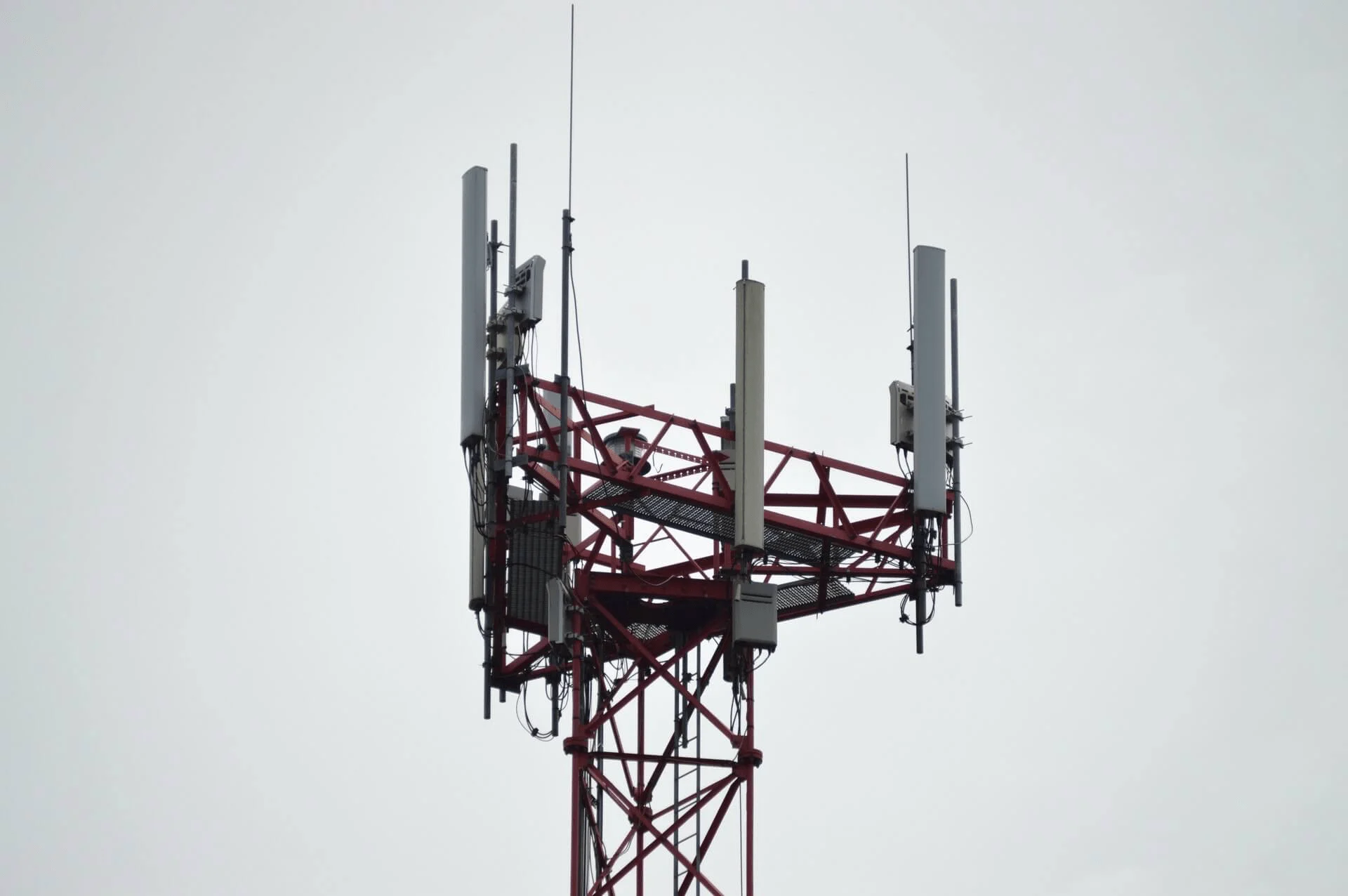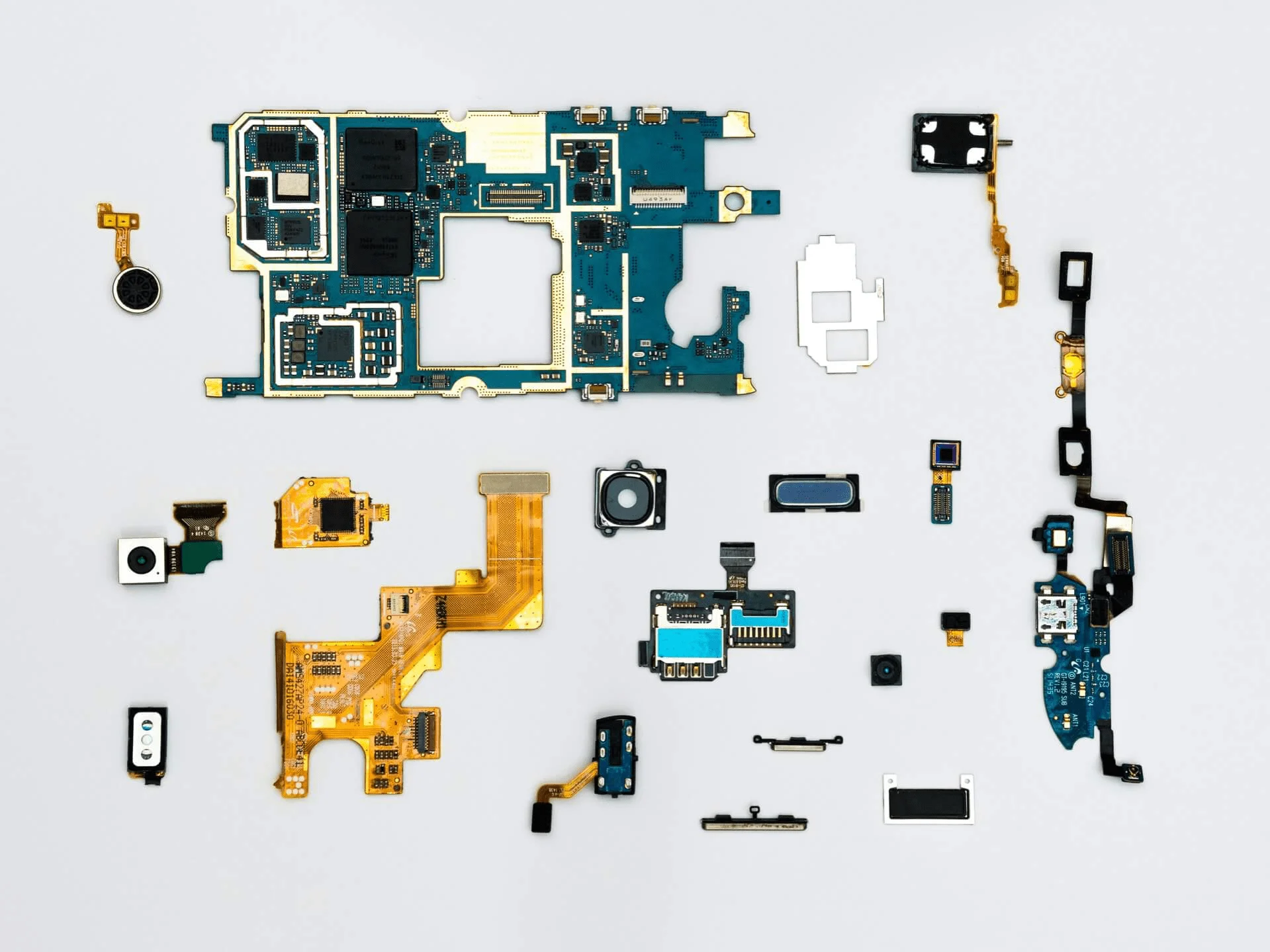What is the Internet of Things (IoT)?
The Internet of Things (IoT) is a novel technology that allows devices to create a global communication network by exchanging data through the internet and acting on that data. Although IoT is a relatively new concept to most, the interconnective technology has been around for two decades.
Kevin Ashton of MIT first used the term “Internet of Things” in 1999. From there on, LG introduced the first-ever smart fridge to the world in 2000, and seven years later, the first iPhone was released.
The rest is history. Think anything from smart televisions to RFID tags within supply chains to self-driving cars. These are all examples of physical objects that are embedded with sensors and connectivity, forming the core of the IoT ecosystem. The IoT has made a significant impact on the world in its infancy and will only continue to grow as time goes on. IoT enables automation, optimizes operations, and enhances efficiency across various sectors, transforming both personal and industrial environments.
How Do IoT Devices Work?
IoT comprises connectedsmartdevices that utilize embedded technology to collect, store and send data from their surroundings. These devices are constantly collecting data from sensors, machines, and their environment to enable real-time insights and automation. The embedded technology comes in sensors, processors, and communication hardware, and the IoT ecosystem includes not only these but also other IoT devices such as household gadgets and industrial equipment.
Internet-enabled devices share data from sensors to an IoT gateway where device data is sent to be analyzed by the cloud or locally. Network connectivity is essential for enabling these devices to communicate, exchange information, and function autonomously. These instruments also communicate with one another and act on the information they have acquired from each other.
Humans can interact with the devices by setting them up or accessing collected data, often through a graphical user interface such as a website or mobile app, but in general, the smart device will do all of the work in the background.
This is the future of efficiency for humans at home and in the business world. IoT devices create ultimate convenience by automatically acting on and learning from the data they receive.
Key Technologies Behind IoT
The rapid growth of the Internet of Things (IoT) is powered by a combination of advanced technologies working together to connect the physical world with the digital. At the heart of every IoT system are IoT sensors, which collect data from their environment—measuring everything from temperature and humidity to motion and light. These sensors are embedded in a wide range of physical devices, enabling them to gather real-time information from the world around us.
To make sense of the data collected, IoT devices rely on robust connectivity technologies. Wi-Fi, Bluetooth, and cellular networks are just a few of the options that allow internet connected devices to exchange data with other devices and systems. This seamless data exchange is what enables smart objects to communicate, share insights, and automate tasks without human intervention.
Once data is collected, it needs to be processed and analyzed. This is where data analytics comes into play, turning raw sensor data into actionable insights. Artificial intelligence (AI) and machine learning (ML) are increasingly important in IoT technologies, as they help detect patterns, identify trends, and make predictions based on the vast amounts of data generated by interconnected devices. These intelligent systems can automate decisions, optimize processes, and even anticipate problems before they occur.
Communication protocols such as HTTP, CoAP, and MQTT are essential for efficient data transfer between IoT devices and other systems. To further enhance performance, edge computing allows data to be processed closer to where it is generated, reducing latency and enabling real-time decision-making. Many IoT deployments also leverage cloud computing platforms to store, process, and analyze large volumes of IoT data, providing the scalability and flexibility needed for modern IoT applications.
Together, these key technologies form the backbone of the Internet of Things, enabling a vast ecosystem of connected devices to collect, process, and act on data from the physical world.
Why is IoT important?
Better Decision Making
Since devices have multiple sensors, they can acquire considerable data from numerous sources, giving them more information to work with when acting on data received.
A great example is smartphones. The device automatically tracks your behaviors on its interface and makes suggestions based on your activity, location, and age.
The phone can also keep tabs on various activities. This includes the amount of screen time users spend each day, power consumption, and sleeping patterns. Massive amounts of data are being collected and sent back to smartphone companies each day to improve features on their devices.
With the constant influx of big data, companies begin to see trends in the usage of their devices and can immediately pinpoint their strengths and weaknesses. IoT systems analyze this data to identify patterns, such as recurring behaviors or anomalies, which helps companies detect trends and optimize their operations. This insight would not be possible without the help of embedded sensors and processors which analyze the data.
Real-time Tracking and Monitoring to Collect Data
The potential for web-based tracking and monitoring systems is enormous. IoT tracking provides an efficient means to track and monitor anything from vehicle fleets, stolen goods, or shipping containers.
Particular devices can even detect changes in the environment. There are multiple industries where IoT trackers can immensely improve the efficiency of companies. A malfunction in these products can lead to enormous losses for the company.
IoT-based trackers need to be reliable to provide the best services. These devices should provide the following:
● Real-time data analytics
Fast, accurate data is required in the industry to allow for quick, informed decision-making when assets or changes in the environment are being monitored.
● Secure communication
Companies usually track and monitor high-value assets. It is essential that the shared data is protected and not under the threat of hackers.
● Stable connectivity
The device should securely provide helpful information on asset locations, machine functionality, and temperatures. This is required at all times and from anywhere on the planet.
Automation
A big reason for the invention of IoT is convenience. Smart devices that automate daily tasks allow humans to do other activities. These devices ultimately lighten people’s workload.
Smartphones allow us to connect with people from all over the world. We can schedule when to send messages and even use dictation to avoid typing ourselves.
Then there are smart fridges. Imagine having one that can detect when foods are about to expire and notify the owner to eat that food before it’s too late. Perhaps the smart fridge could even register that the milk is nearly finished and automatically order more.
Another example is a self-driving car, connecting to the Internet to find the quickest route to a destination. This is the ultimate convenience for humans. The room for innovation within IoT is massive.
More Efficient Personal and Business Tasks
Web-based devices save people money and time. This includes planning work schedules, time tracking, effective communication, and setting reminders for daily tasks.
Having IoT devices track and order things for you, turn lights off automatically when you leave the room, and manage tasks for which you don’t have time is the ultimate convenience!
More and more of these devices will become available for use over the coming years, with an estimated total number of IoT connections to reach 27 billion in 2024.
It’s no secret that human productivity has gone up with the technological age. People are busier than ever before, thanks to IoT. It’s incredible to have the opportunity to do important things like spending time with family while an IoT device takes care of mundane activities.

IoT Applications and Devices
The versatility of IoT applications is transforming industries and everyday life, thanks to the wide variety of IoT devices now available. In the home, smart home devices like smart thermostats, smart lighting systems, and security systems allow users to control smart devices remotely, optimize energy usage, and enhance safety. These internet connected devices can automatically adjust settings based on user preferences or environmental conditions, making homes more comfortable and energy efficient.
Wearable devices, such as fitness trackers and smartwatches, are another popular category of IoT applications. These smart devices collect data on physical activity, heart rate, and sleep patterns, providing personalized recommendations to help users improve their health and wellness. Wearable technology is also making its mark in healthcare, with smart medical devices and remote patient monitoring systems enabling doctors to monitor patients’ health in real time, even from a distance.
In the industrial sector, industrial IoT devices are revolutionizing manufacturing, logistics, and maintenance. Sensors and actuators monitor equipment performance, enabling predictive maintenance that reduces downtime and maintenance costs. Industrial IoT also supports quality control, fleet management, and the optimization of supply chains, driving operational efficiency across the board.
IoT is also a key enabler of smart cities, where connected devices are used for smart traffic management, waste management, and energy management systems. These applications help cities reduce energy consumption, improve public safety, and enhance the quality of urban life. Connected cars are another example of IoT in action, using sensors and connectivity technologies to improve safety, navigation, and convenience for drivers and passengers.
From smart buildings to connected cars and beyond, the many IoT devices in use today are reshaping how we live, work, and interact with the world around us.
IoT Platform and Development
Behind every successful IoT deployment is a robust IoT platform—a software solution that streamlines the development, deployment, and management of IoT applications and devices. IoT platforms provide essential tools and services, including data analytics, IoT device management, and security features, making it easier for businesses and developers to build and scale their IoT solutions.
These platforms support a wide range of IoT applications, from smart home devices and wearable devices to complex industrial IoT systems. Developers use programming languages like C, Java, and Python to create custom IoT applications, often leveraging APIs and SDKs provided by the IoT platform to integrate with other devices and services.
IoT security is a top priority in the development process. IoT platforms offer features such as encryption, authentication, and access control to protect both IoT devices and the sensitive data they generate. This is crucial for maintaining user trust and ensuring the integrity of the IoT ecosystem.
In addition to security, IoT platforms often include advanced data analytics and visualization tools. These enable developers and businesses to gain valuable insights from IoT data, track customer behavior, and make informed decisions that drive new business models and revenue streams.
By providing a comprehensive suite of development, management, and analytics tools, IoT platforms are accelerating the adoption of IoT technologies and empowering organizations to unlock the full potential of the Internet of Things.
IoT Dangers
Security and Privacy
The principal idea for IoT is to have an innovative, secure system through which billions of devices can automatically communicate with each other. This system needs rock-solid security, especially with the daily transfer of data.
Technology is used for both good and evil. Cybercriminals use their skills in IT to hack into systems to steal money or access sensitive data. They can also hack IoT devices for information on what the device may be tracking or monitoring.
This is highly dangerous for business owners and individuals where hackers try to intercept shipments of high-value assets or sell sensitive information on the dark web.
People on the dark web then use this information to send spam emails. Luckily there are preventative measures like email address lookup, which allows people to identify the sender of phishing emails.
Therefore, the IoT system requires tight security measures to keep data safe. However, it is not easy to ensure complete protection with so many devices connected.
Technology companies have found that gaining the trust of individuals and industries to share their data has proven difficult.
As IoT advances, the security measures will only become stricter to keep everyone’s data safe when utilizing the Internet of Things.
Potential Increased Unemployment
It is known that devices have made specific human jobs redundant. The introduction of artificial intelligence (AI) has sparked fear in some who are afraid to have their livelihood taken away from them by a machine.
McKinsey Global Institute estimates that around 30% of the world’s current jobs will be replaced by automation by 2030.
This can be daunting for some. However, the job market is constantly evolving. The creation of technology has seen the emergence of related professions like data scientists.
Over-reliance on Technology
It is easy to fall into the trap of relying too much on technology to meet our needs. For instance, the recent boom of social media where people worldwide can connect, share photos, stories, and essentially their lives with others on social platforms.
While this is well-intentioned, many people struggle to live without social media and eventually depend on smartphones. According to recent studies, higher social media usage in young adults is linked to increased depression.
Moreover, the future could see individuals relying heavily on technology to the point that human nature shifts from reality into alternate dimensions such as the Metaverse.
Compatibility
IoT is expanding in many settings, with various technologies vying for supremacy. When connecting devices, this will cause problems and necessitate the deployment of additional hardware and software.
Other compatibility concerns arise due to non-unified cloud services, a lack of standardized M2M protocols, and differences in IoT device firmware and operating systems.
Some of these technologies will become obsolete in the coming years. This is crucial since, unlike traditional computing products with a short lifespan, IoT appliances (such as smart fridges or TVs) will last much longer and should continue to work even if their maker goes out of business.
Conclusion
The internet of things still has tremendous development opportunities. Regardless of company or brand, all devices would need to communicate with one another for IoT technology to meet its full potential.
Companies need to ensure that the information they collect on their users is kept safe by securing it as best they can. This would provide a bright future for humanity and technology if done correctly.
BIO
Ben is a Web Operations Executive at InfoTracer who takes a wide view from the whole system. He authors guides on entire security posture, both physical and cyber.






